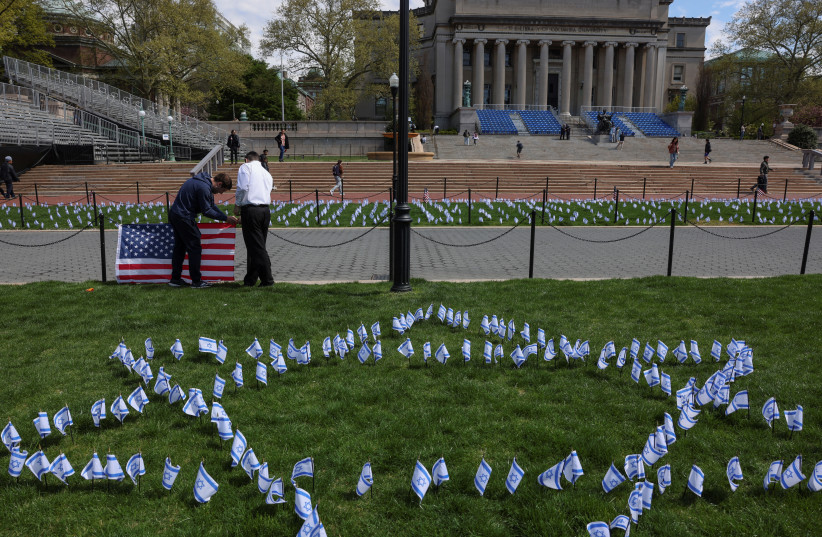Jews are often accused of being cultish and standing with one another through thick and thin. How different things might be if this had historically been the case – or even if this was the case today. As far back as the exodus from Egypt, there were marked differences of opinion among Jewish leadership and rebellions from within, which inevitably brought peril to the Jewish people.
The Second Temple period in Jerusalem was rife with tension and struggles involving the Jews and their relationship with foreign, occupying powers – but even more destructive was the discord among various Jewish sects, which both historical and Talmudic sources suggest was responsible for the destruction of the Israeli commonwealth.
It has been said that history repeats itself. The devastating attack on October 7 was reminiscent of the Holocaust, pogroms and persecution that Jews have endured throughout the ages. The rise in antisemitism that followed was also nothing new: since the attacks, the world has grown exponentially more dangerous for Jews everywhere. On the streets, on campuses and in the workplace, Jews have heard and felt threats that they haven’t experienced in generations.
One would hope that the response and reaction would be different and that at least the global Jewish community would learn from past historical mistakes. Absent simple solutions, which sadly do not exist, many people – and particularly those intimately impacted – feel not only stressed but also compelled to express their opinions strongly. Compounding this situation are perhaps even stronger (and certainly louder) opinions of those outside the Jewish community.

We Jews have always expressed ourselves strongly, and we accept this trait as an essential part of our identity. One might argue that these strong beliefs and our ability to voice them have sustained us through the worst of times. But there are times – especially when Jews everywhere face genuine danger – that we need to transcend historical precedents and create a new reality. This is one of those times.
Post-October 7 reality
In a post-October 7 world, it’s critical that we unite and work together in the face of outside threats; Jewish survival depends upon it. Minimally, we must attempt to understand other points of view within the global Jewish community.
The war in Gaza has indeed resulted in civilian casualties on both sides. News coverage and social media feeds are filled with photos that provoke anguish and anger. But, on college campuses in the US, some Jews always feel compelled to side with any apparent underdog. Thus, they believe that Israel is acting inappropriately in defending itself, and loudly stand with those calling for our destruction.
Conversely, there are Israeli politicians and elected officials who sometimes engage in rhetoric and initiatives that are divisive, which is dangerous during a time of war. Mass demonstrations supported by Israelis whose family members are still held hostage are morally justified, but are unlikely to effect the changes sought if Israel’s enemies are encouraged and emboldened to continue these wars.
There are no easy answers to the chaos in the Middle East. Those criticizing Israel and its conduct during a clearly defensive war may have their own ideas about how things might be handled better. Clearly there are no easy or obvious solutions.
However, appropriate to the High Holy Days – and I would argue even for those who feel they have neither spiritual nor intellectual connection to those days – it is time to plead for and embrace a greater sense of unity; an understanding that the State of Israel is vital to the Jewish people. Many American Jews feel strongly attached to the land, as Jews have for thousands of years.
Even those who disagree with the current government’s policies should, for the sake of unity and the future of the Jewish people, tone down these disagreements. Indeed, the same can be said of those Jews in Israel, who hold personal or community agendas that may vastly differ from the government’s current stance on any given issues, and for government officials who have not been sensitive enough to the adverse effects of their rhetoric. Now is not a time to weaken our connection to one another.
As Ecclesiastes assures us, for everything, there is a time – a time to disagree vehemently – and a time to come together in the interest of the bigger picture. Truly, for the sake of the State of Israel and the Jewish people, this is one of those times.
The writer is president of Touro University.
